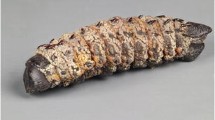Abstract
I investigated the effects of tannin consumption, using plant tannins naturally occurring in the diet, on a herbivorous mammal, the North American pika, Ochotona princeps. The objectives were to determine if a high-tannin diet influenced protein and dry matter apparent digestibility, fiber digestibility and production of detoxification by-products. Additionally, I examined the possibility that pikas produce salivary tannin-binding proteins, a potential mechanism for avoiding detrimental effects of tannins. My results demonstrate that although pikas constitutively produce salivary tannin-binding proteins, animals consuming a high-tannin diet of Acomastylis rossii exhibited lower dry matter, protein and fiber digestion and excreted higher concentrations of detoxification by-products. Thus, A. rossii tannins are potential toxins as well as digestibility reducers. I propose a hypothesis coupling detoxification to reduced fiber digestion that is applicable to pikas as well as other mammalian herbivores consuming phenolic-rich diets.
Similar content being viewed by others
Author information
Authors and Affiliations
Additional information
Received: 31 July 1995 / Accepted: 9 July 1996
Rights and permissions
About this article
Cite this article
Dearing, M. Effects of Acomastylis rossii tannins on a mammalian herbivore, the North American pika, Ochotona princeps . Oecologia 109, 122–131 (1996). https://doi.org/10.1007/s004420050066
Issue Date:
DOI: https://doi.org/10.1007/s004420050066




